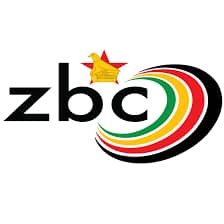Brunette Tshuma
During the Pre-Budget Seminar held in Bulawayo, at the ZITF grounds, the urgent need for full digitalization of media in Zimbabwe was highlighted by Hon. C. Matewu, the Chairperson of the Parliamentary Committee on Information, Media, and Broadcasting Services.
Despite being given until 2015 to complete this transition, Zimbabwe lags nine years behind schedule, with only 18 out of the required 48 transmitters installed.
Hon. Matewu advocated for the disbursement of funds to improve the Zimbabwe Broadcasting Corporation (ZBC) channel. However, this proposal faced significant resistance from attendees, including Hon. Daniel Molokele, who criticized the allocation of funds to ZBC, labeling it a waste of resources due to its limited coverage and declining viewership.
“I strongly object the issuing out of the tax payers’ funds for ZBC because it’s a waste of time and resources, there is just no coverage.”
“They are a broadcasting station, they should lean to make use of what they have to raise funds and sustain themselves.” argued Hon. Daniel Molokele of Hwange Central.
ZBC has been the sole broadcasting channel available in many Zimbabwean homes, but its monopoly has led to a lack of diversity in programming. The channel’s inability to provide features like live streaming, current movies, stand alone sports channel, 24 Hour music channel, unbaised news reporting and so forth has further alienated viewers, who increasingly seek more engaging content.
The decline in ZBC’s viewership can be attributed to several factors:
- Limited Programming: ZBC’s single-channel format restricts the variety of content, unlike platforms like DSTV, which offer multiple channels catering to diverse audiences.
- Political Bias: ZBC has been criticized for acting as a mouthpiece for the ruling party, ZANU-PF, failing to provide balanced coverage or constructive criticism of the government.
- Regional Disparities: The channel predominantly features content from the Mashonaland region, neglecting the interests of viewers in Matabeleland, which has led to further disenchantment.
Some of the many reasons why ZBC has lost viewership is continuous forced content unto its viewers.
For instance Presidential events which would have been live streamed for the public, are later broadcast in the evening news, either on radio or ZTV, forcing the public to repeat a long boring address of the same event.
“People who watch the channel are just ordinary people, they don’t need all that politics but need entertainment.” said Molokele
Hon. Molokele emphasized that the lack of funds for ZBC should not be attributed to financial constraints but rather to laziness in generating revenue through engaging content. He argued that ZBC could sustain itself by improving its programming and reaching out to its audience more effectively.
In response, Hon. Matewu acknowledged that strategies for implementing multiple channels on ZBC are underway, but he still urged the Minister of Finance to allocate 50% of the remaining funds for 2024 to support this initiative.
The discussions at the Pre-Budget Seminar indicate that the digitalization of ZBC is not merely a technical upgrade but requires a fundamental reassessment of its role and responsibilities to the Zimbabwean public. Without addressing the underlying issues of content quality, political bias, and regional representation, the transition to a fully digital platform may not yield the desired improvements in viewership or public trust.
Zim GBC News©2024


